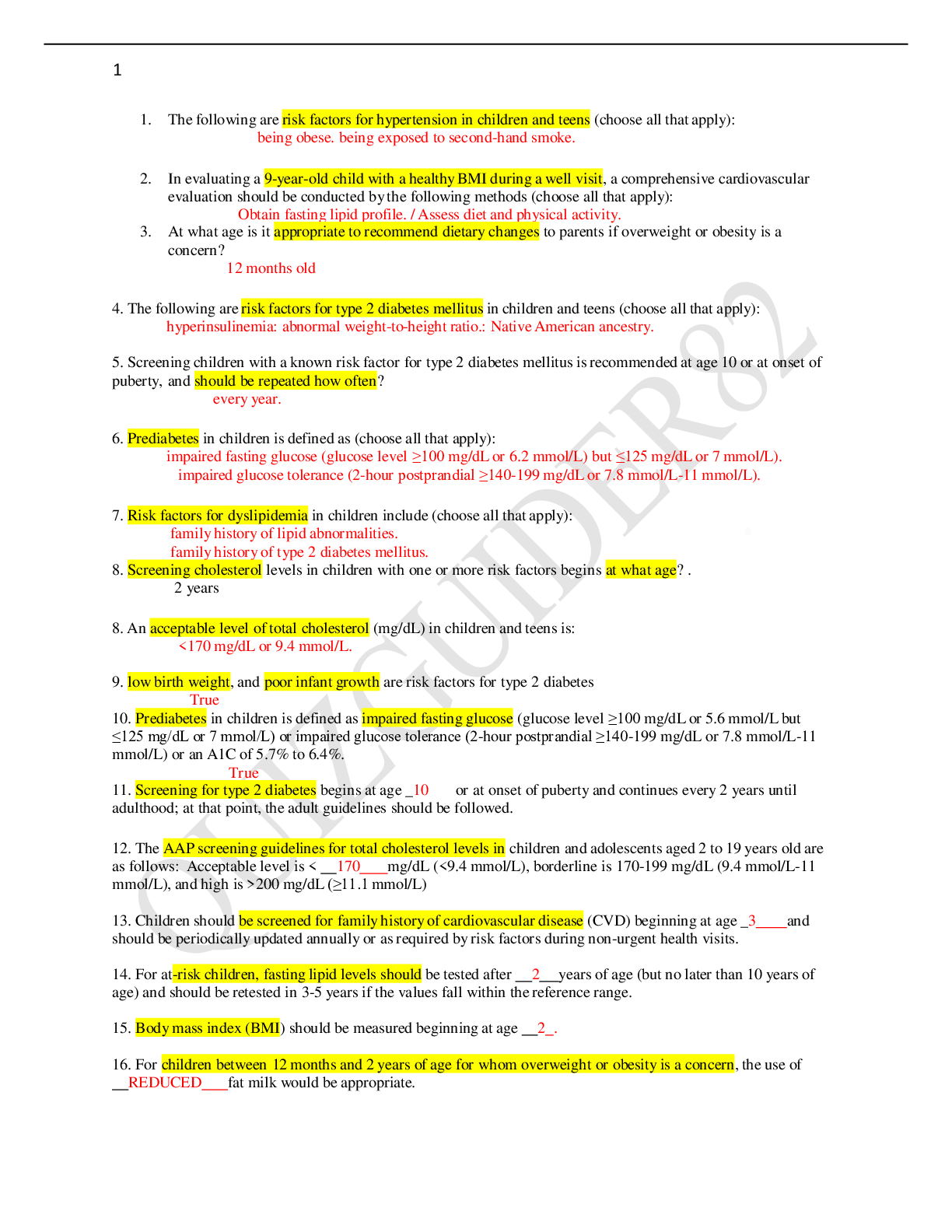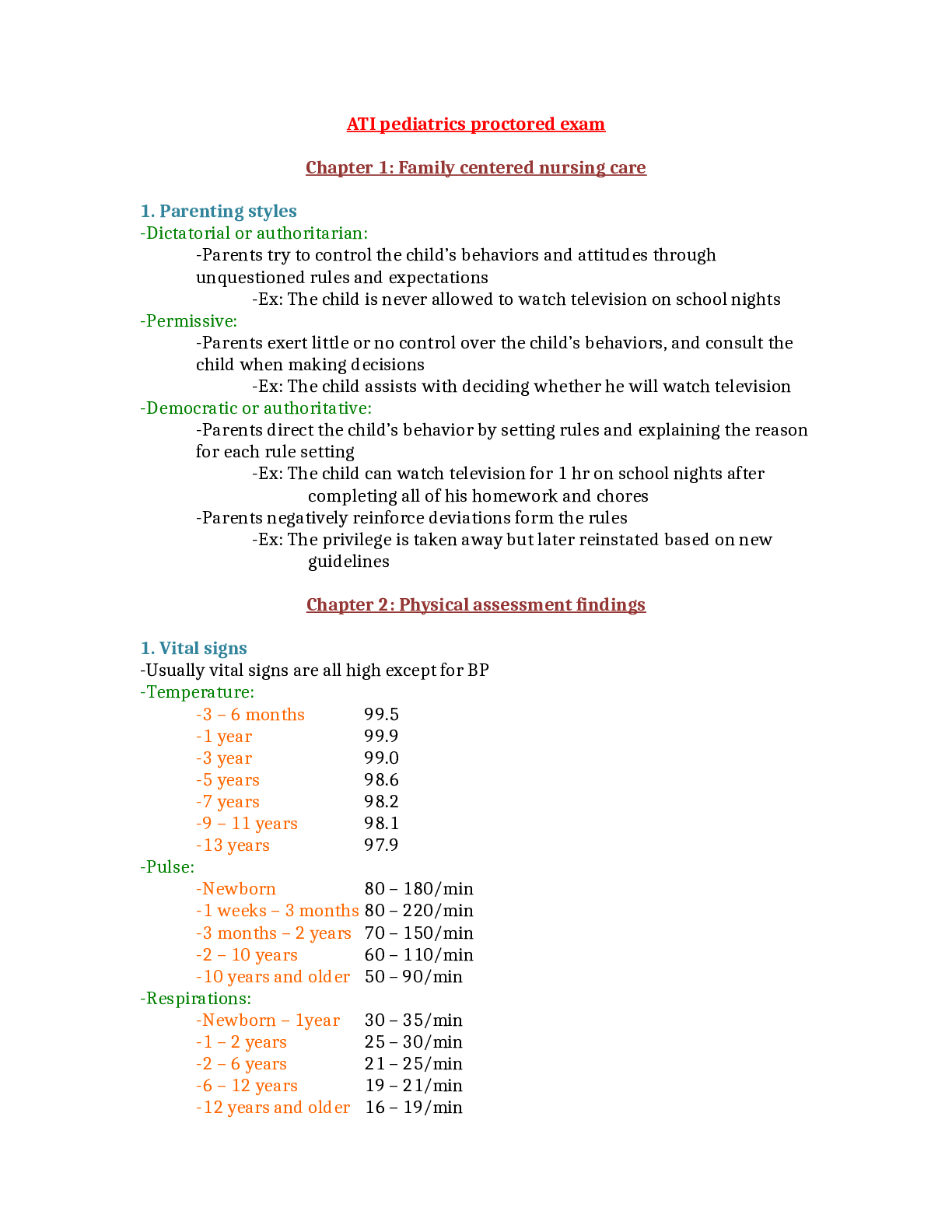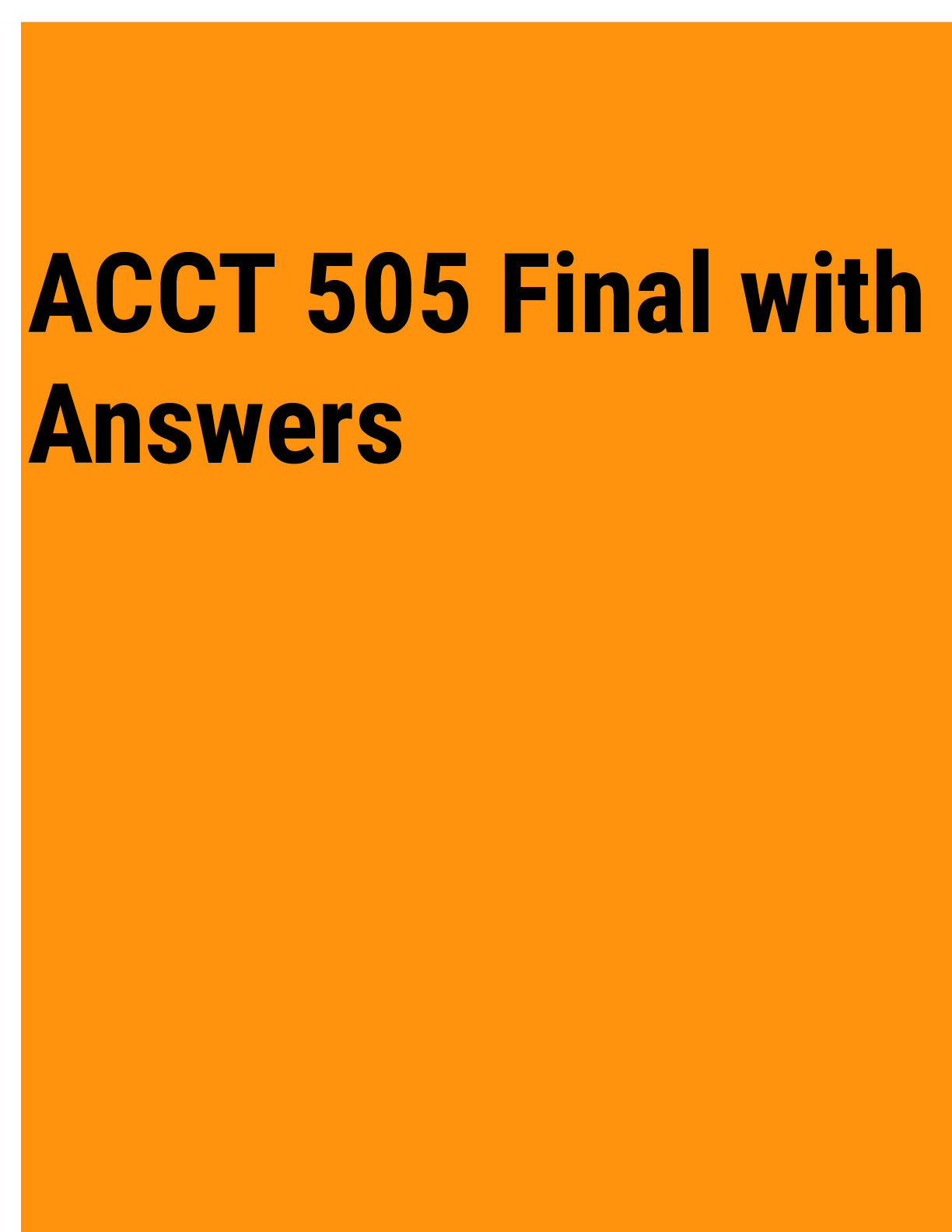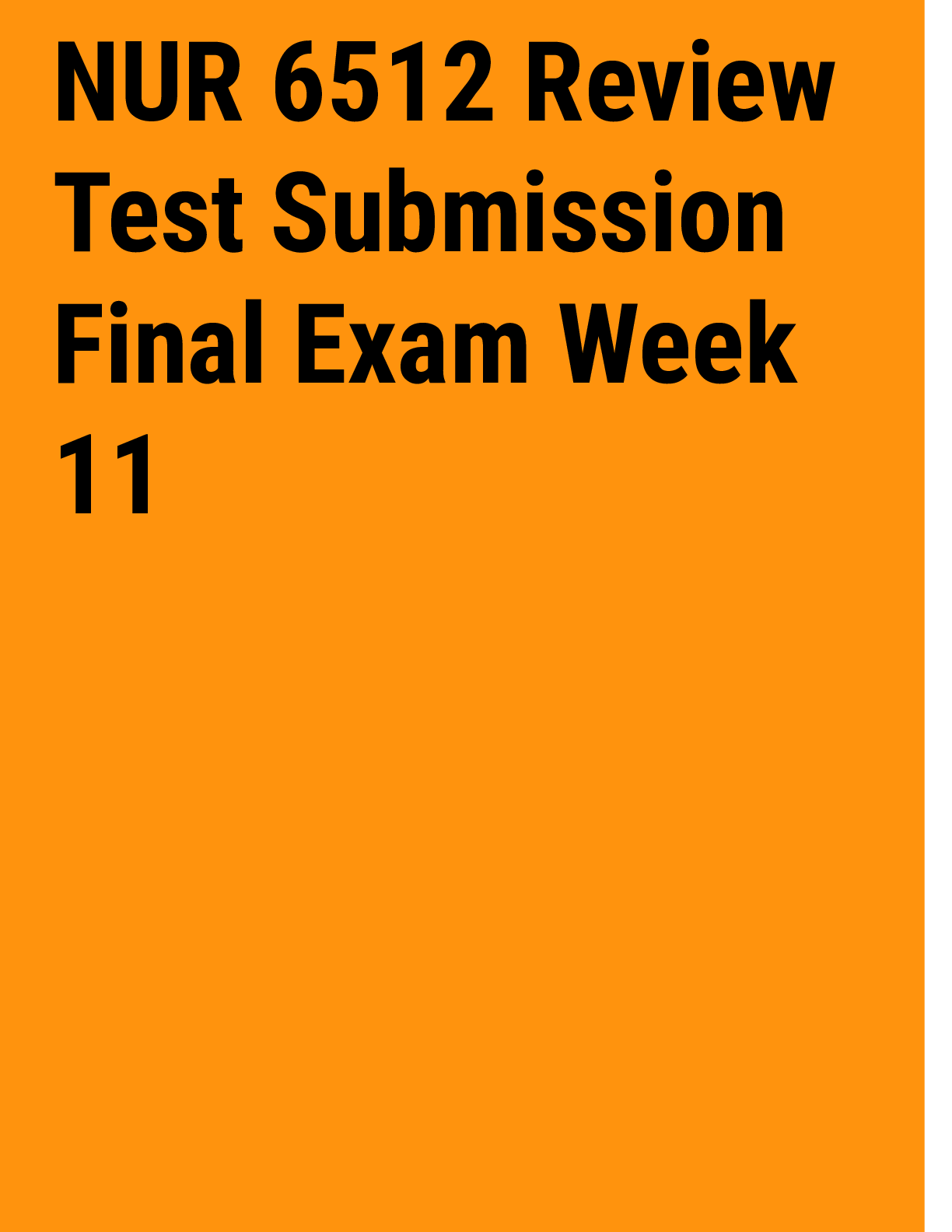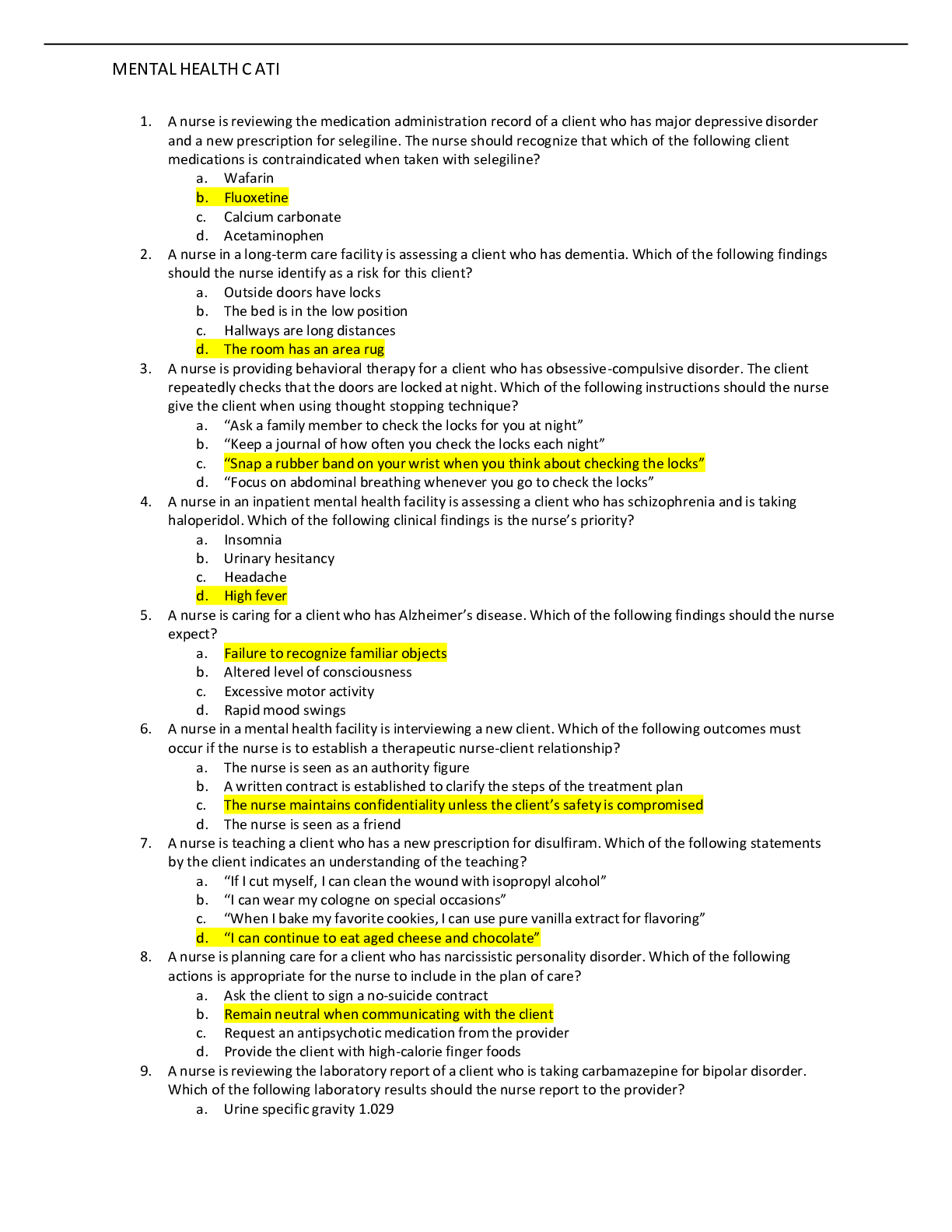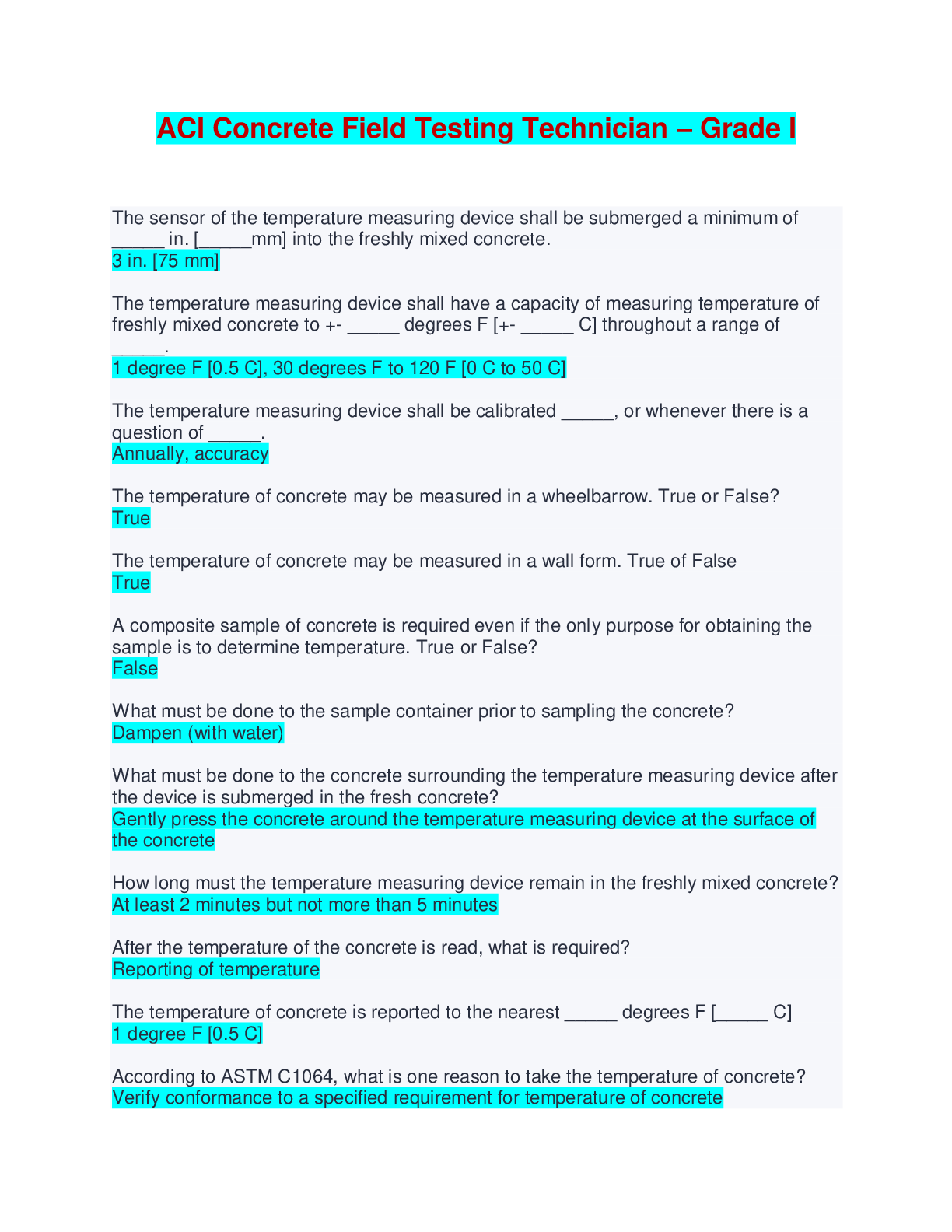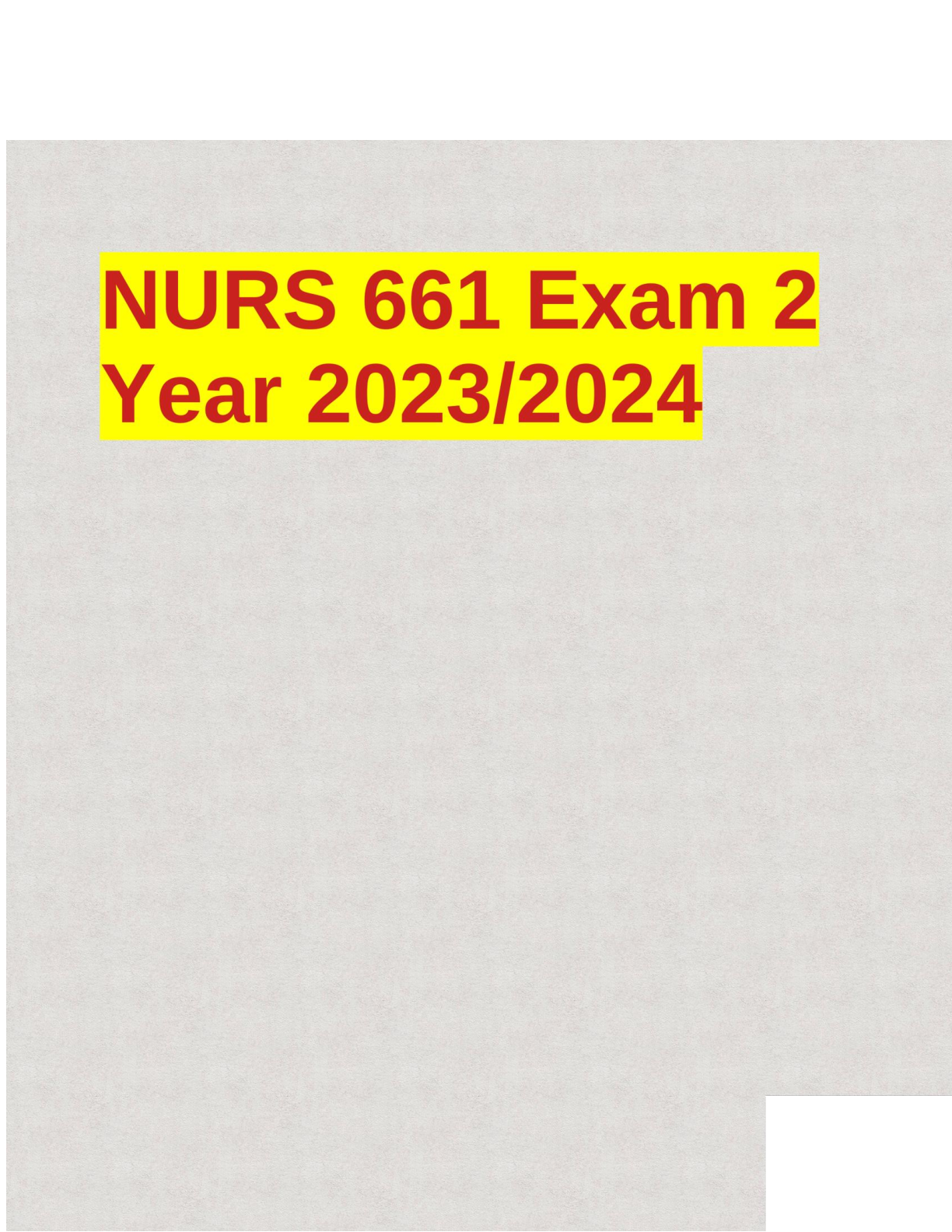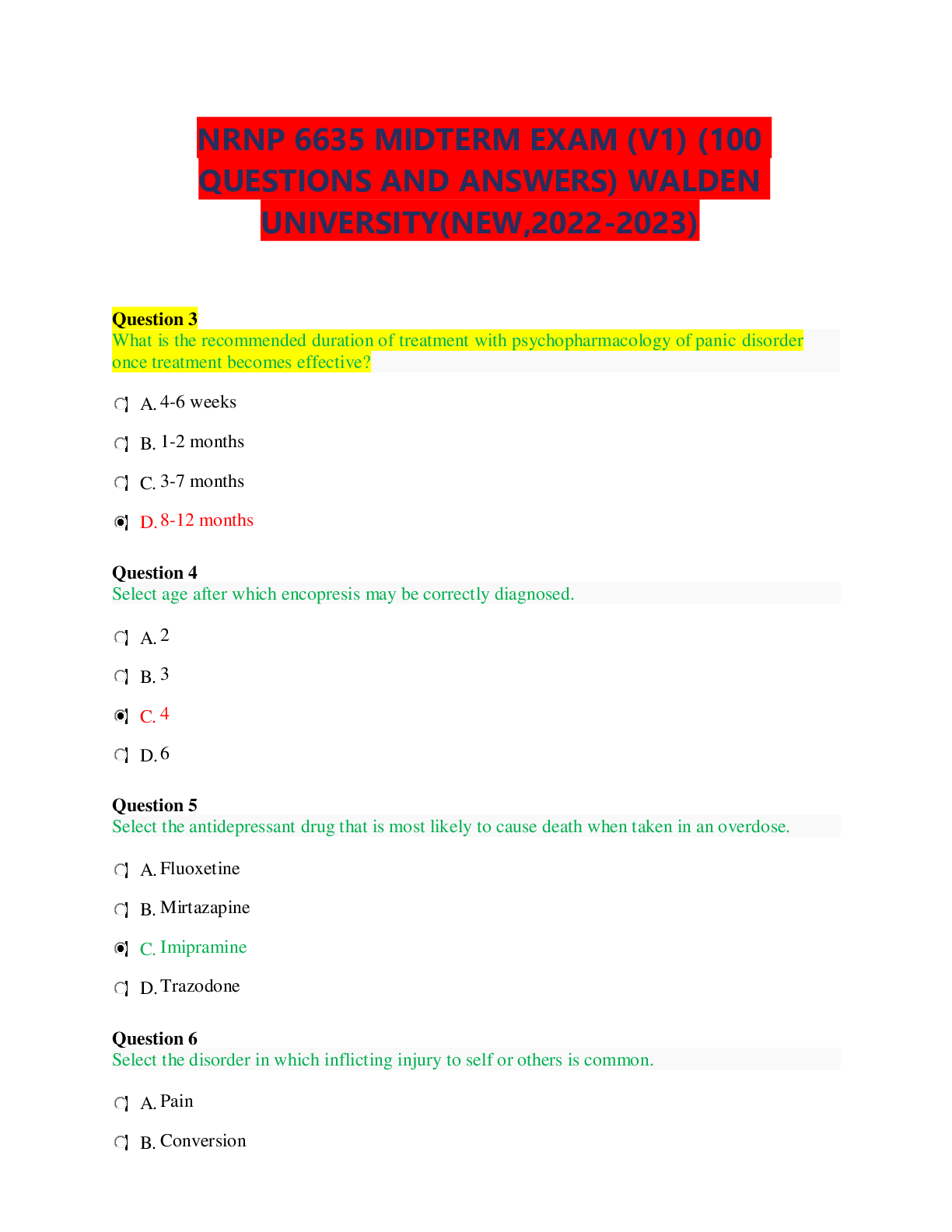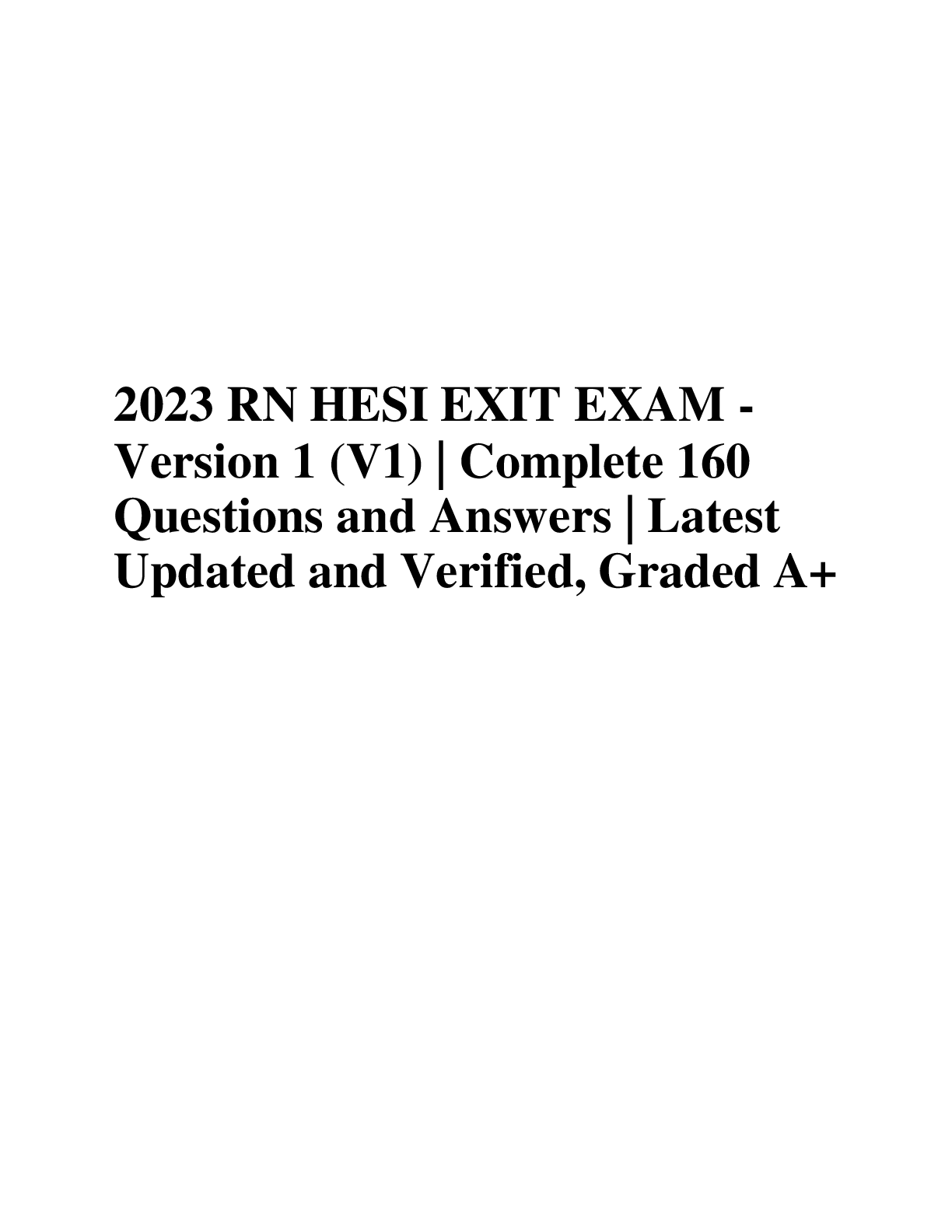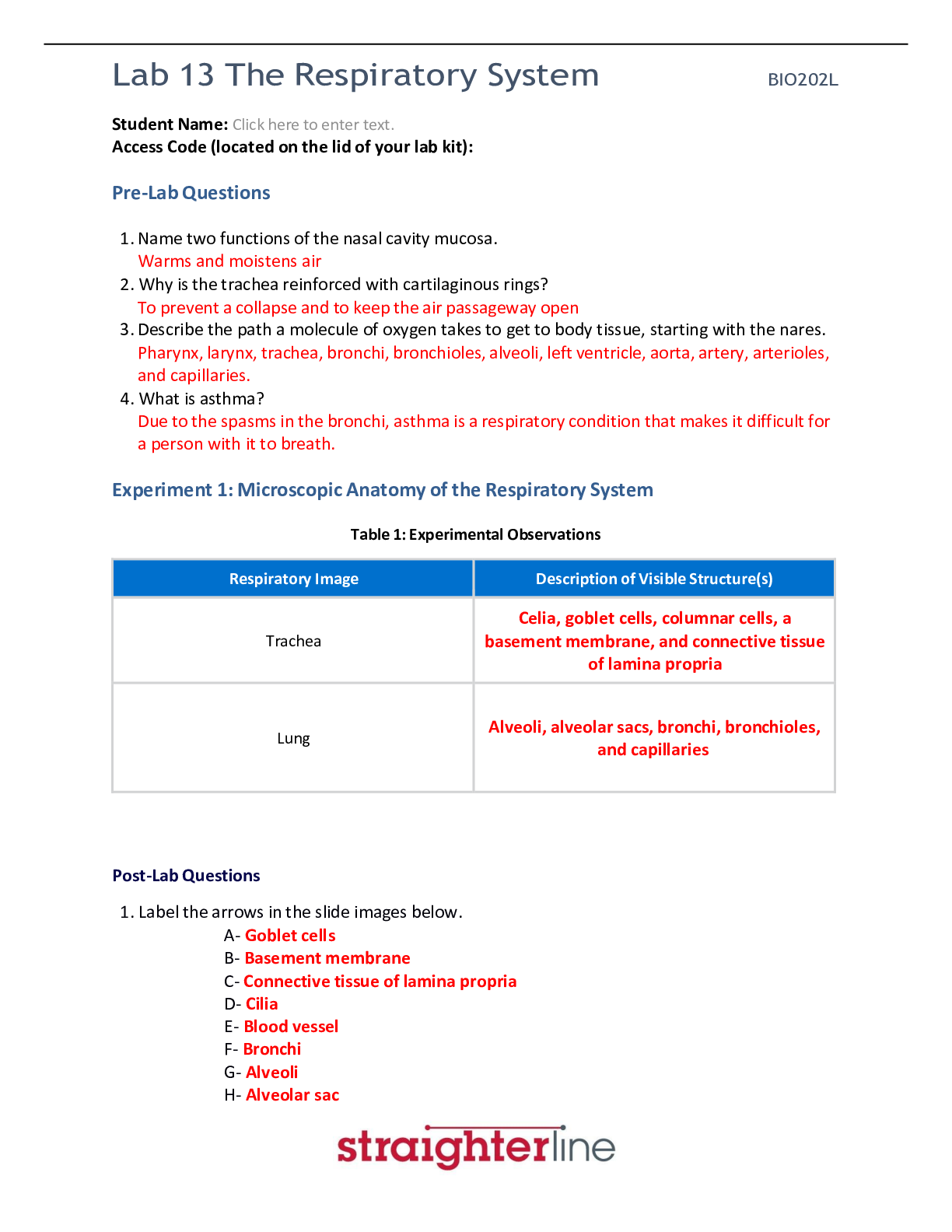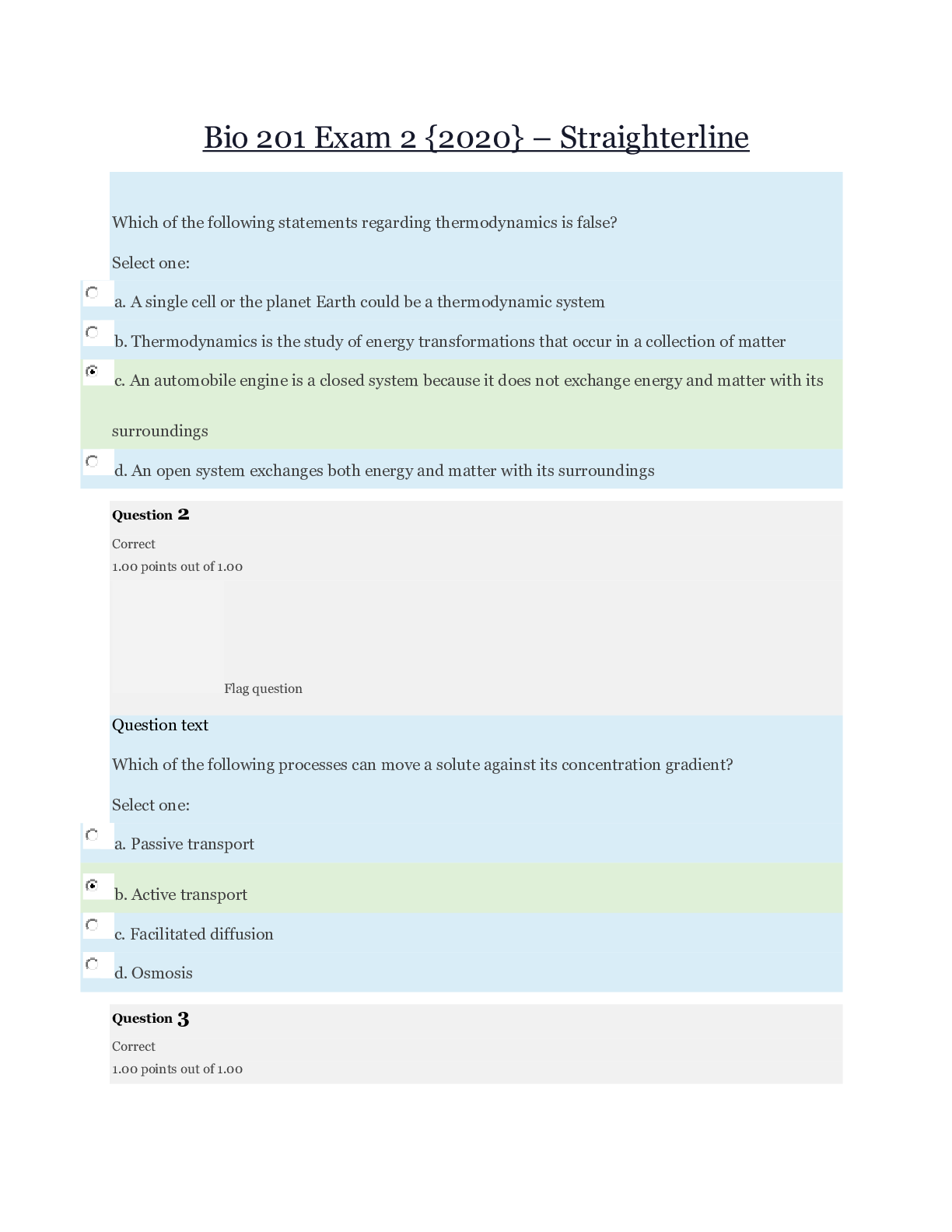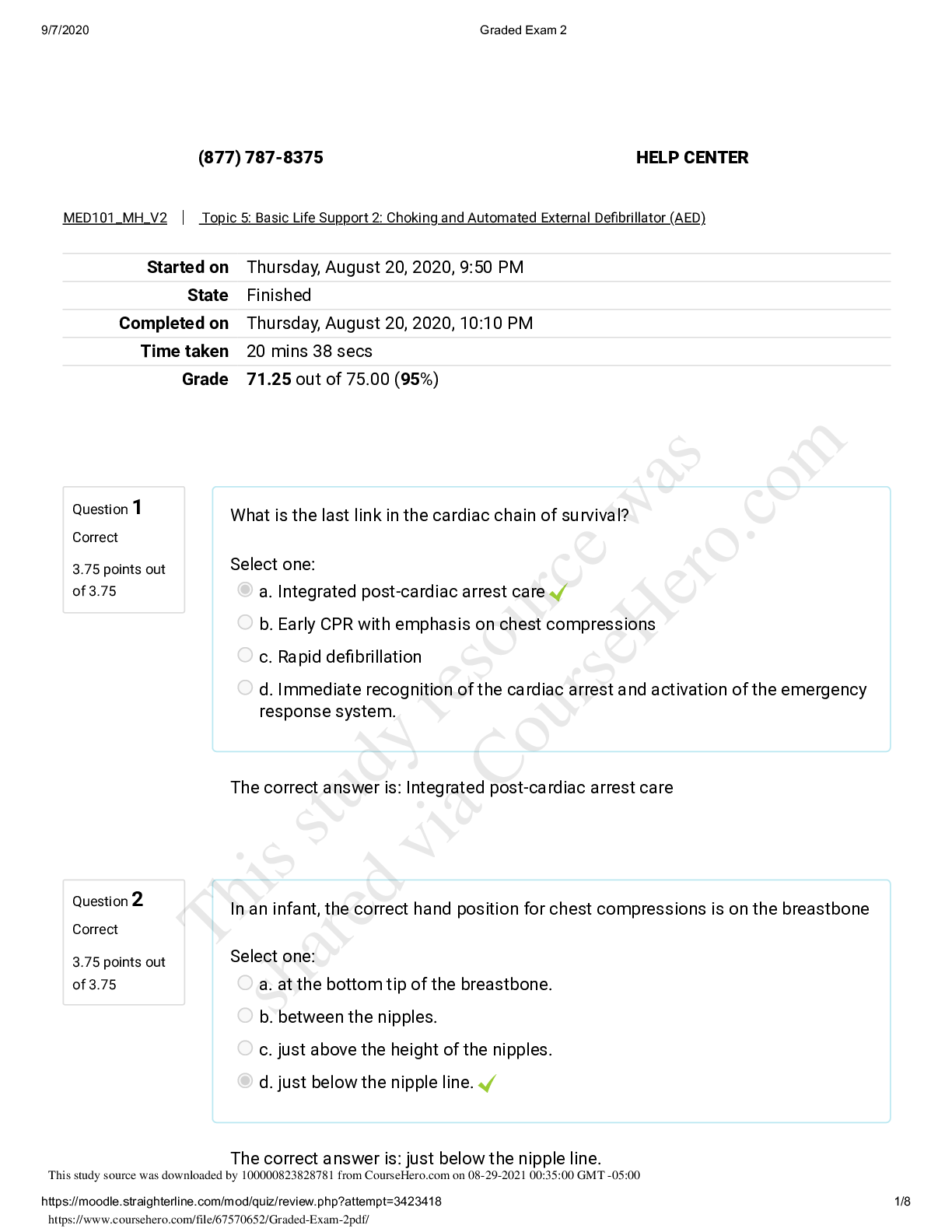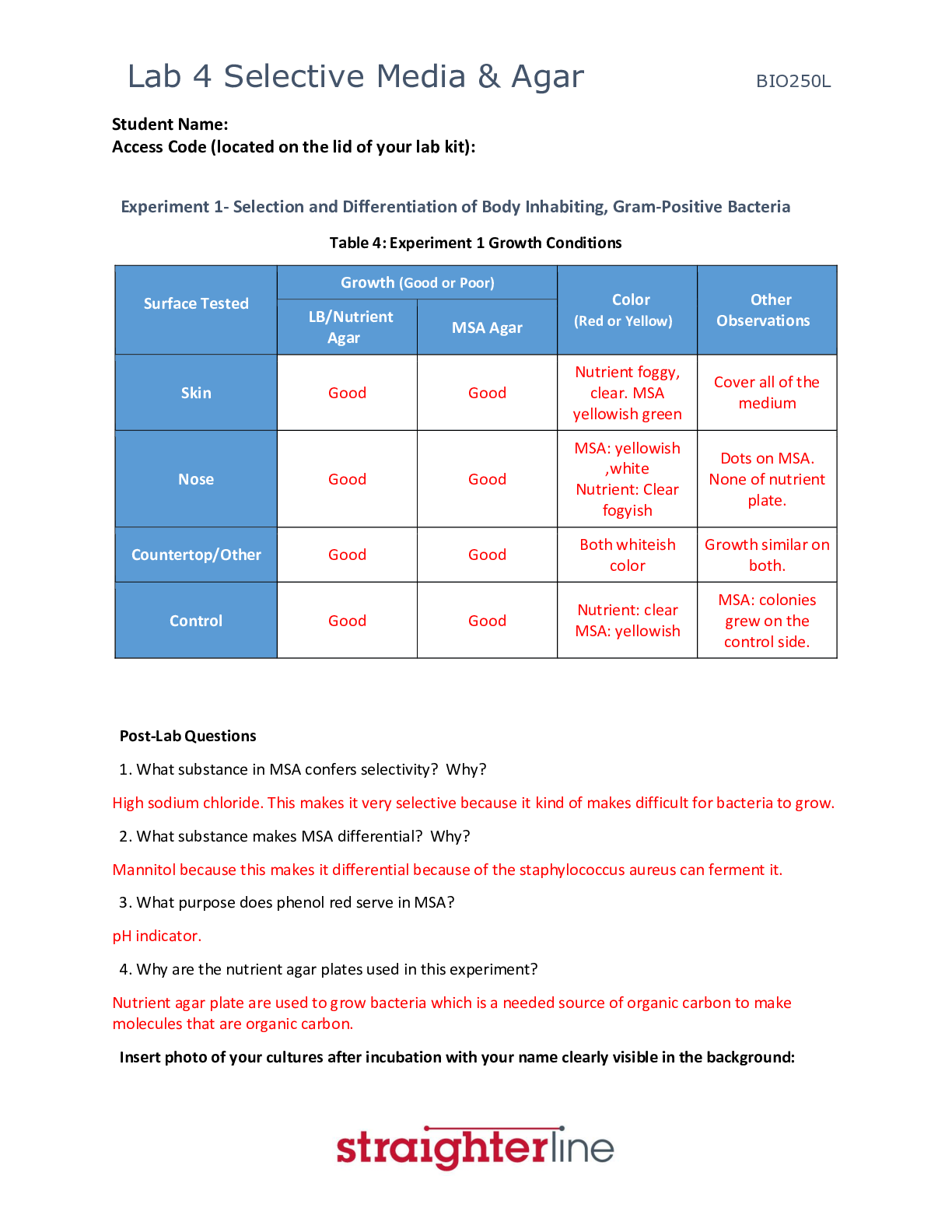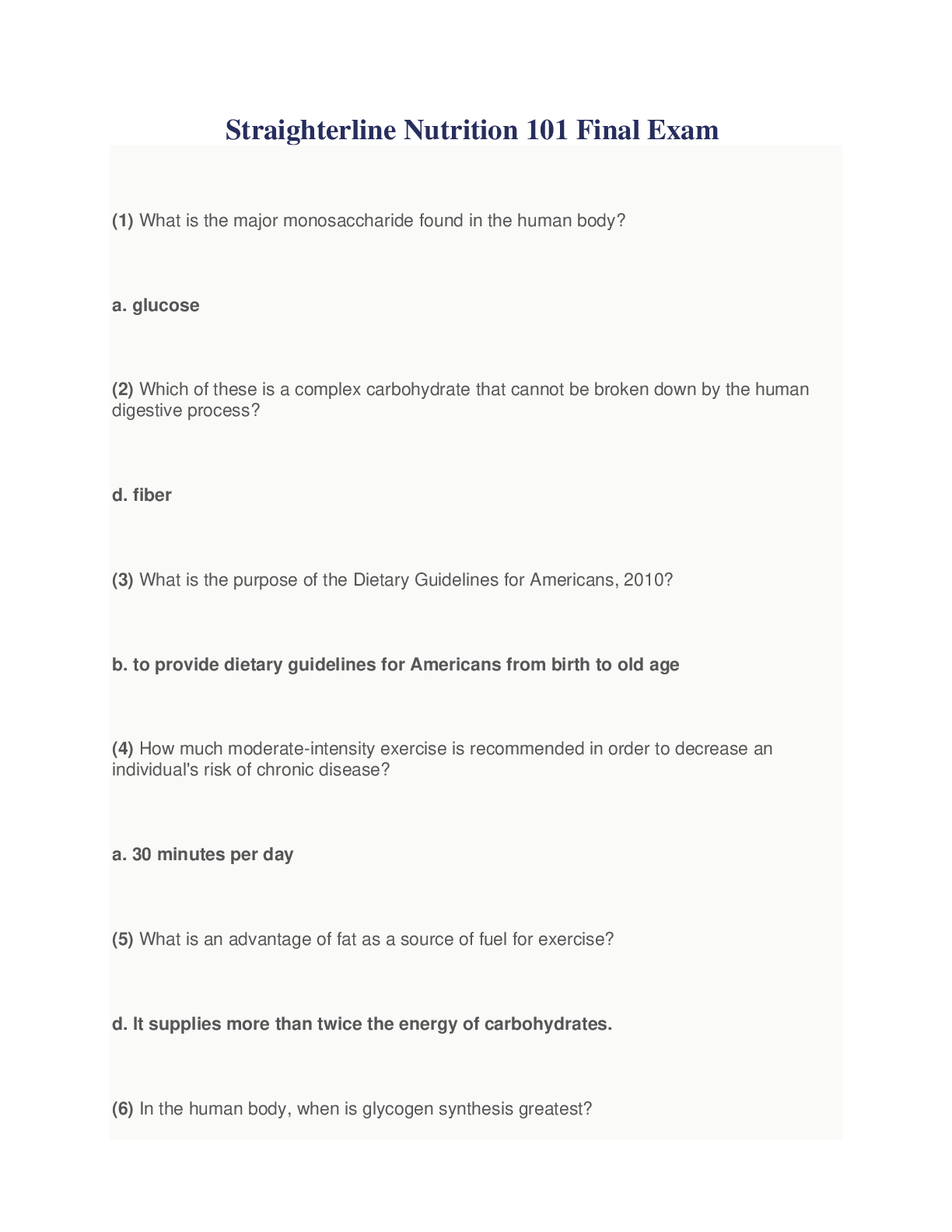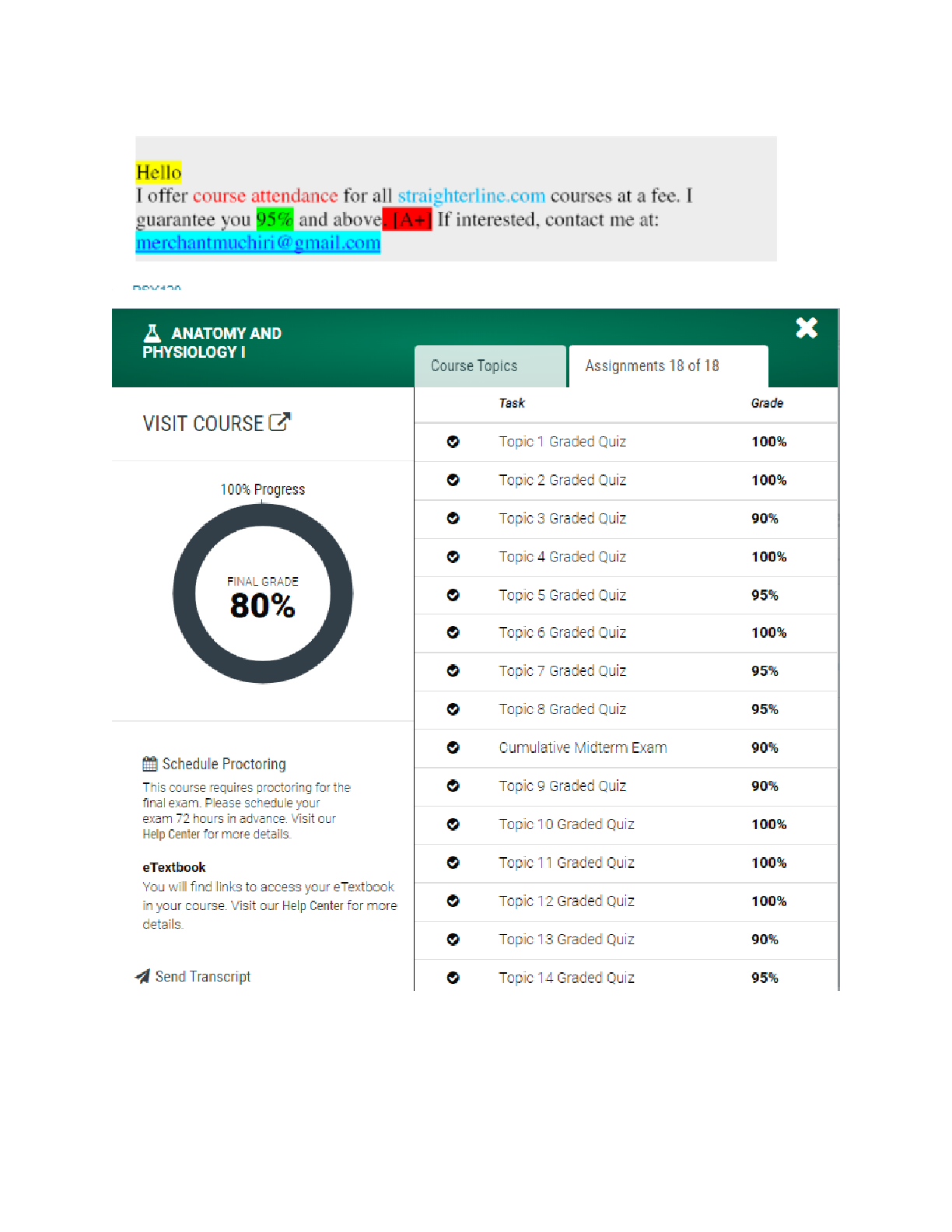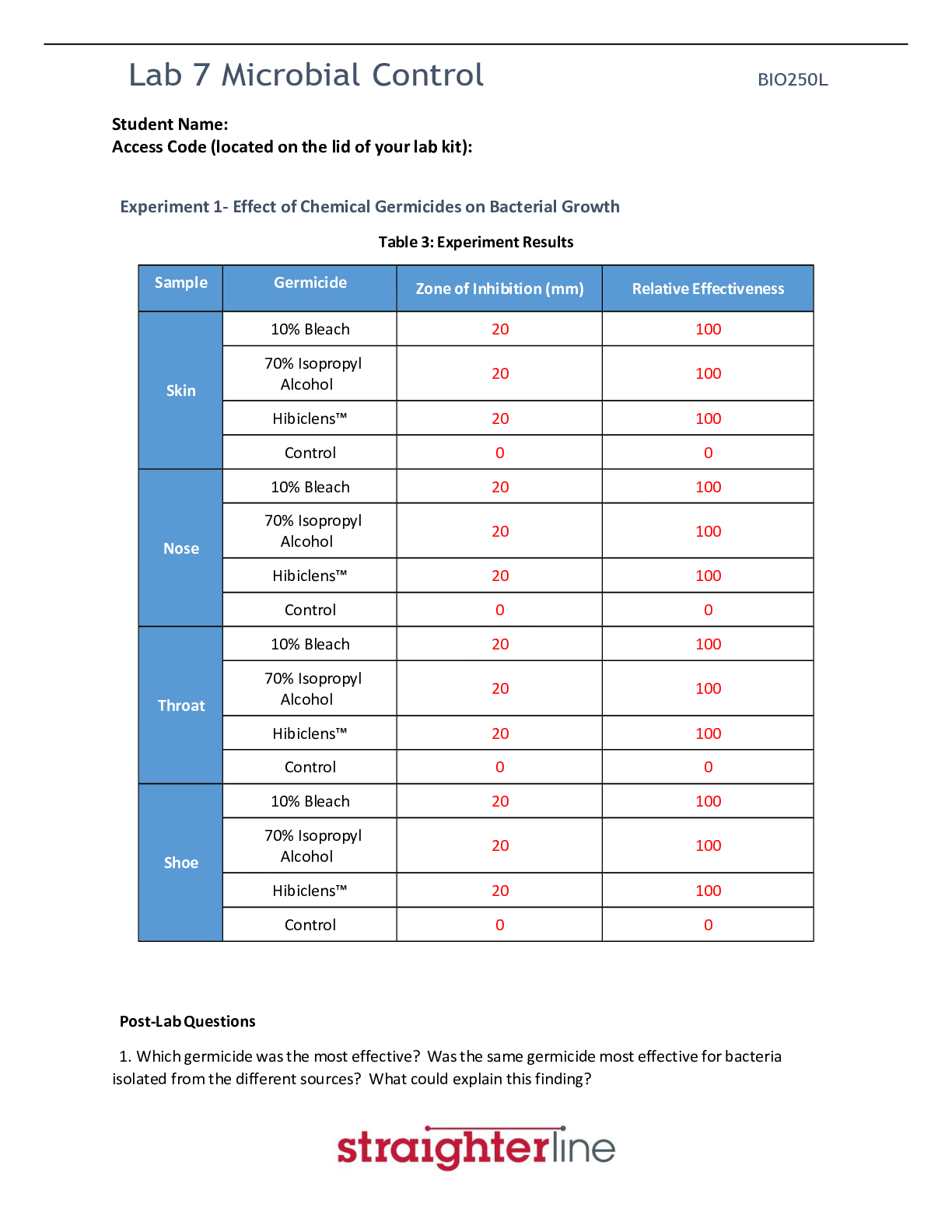Economics and Statistics > EXAM > ECON 205 Final Exam (All)
ECON 205 Final Exam
Document Content and Description Below
Blackburn agrees with Butler that not all people act so as to maximize the intensity or duration of any specifc psychological state because: Question 1 options: Too many agents are irrational. Tha nos... killed them all. There is too much diversity in the psychological states that agents have. Question 2 (1 point) Olson argues that no one will contribute anything to a commons. (Hint: Olson is discussed by Ostrom.) Question 2 options: True False Question 3 (1 point) Which strategy do Coakley & Kates take in their objection to Powell & Zwolinski? Question 3 options: Objecting that their argument is morally offensive. Objecting that their argument commits a conflation. Objecting that their argument has a false implicit assumption. Objecting that their argument has false explicit assumptions. Question 4 (1 point) Friedman argues that Tragedies of the Commons can always be solved by fnding a privileged minority to pay for the common good. Question 4 options: True False Question 5 (1 point) Bowles & Gintis believe that willful punishers were only able to invade the human population because there were already so many conditional cooperators. Question 5 options: True False Question 6 (1 point) Smith believe that cities would become more productive than towns only because demand for products was higher in cities than in towns. Question 6 options: True False Question 7 (1 point) Which of the following is the least likely to be a public goods problem? (Hint: which activity directly causes an enormous beneft to the individual) Question 7 options: Parks, where park-goers have to spend time finding bins for depositing their trash to maintain cleanline for all park-goers Voting, where citizens have to spent their time to elect a government that is representative of the public Traffic, where drivers have to resist waiting in intersections to minimize congestion for all drivers Education, where people have to spent time and money earning an education to increase economic productivity Question 8 (1 point) Hayek compares the global economy to the human brain: both involve billions of players who mostly communicate with those who are closest to them. Question 8 options: True False Question 9 (1 point) Friedman argues that barter is the most inefcient form of trade because it requires a double coincidence of wants and this imposes substantial transaction costs on traders. Question 9 options: True False Question 10 (1 point) Which of the following isn't a kind of stakeholder that Powell & Zwolinski mention in their article against regulating sweatshops? Question 10 options: Sweatshop workers Future generations MNEs NGOs Question 11 (1 point) Blackburn believes that agents with intransitive preferences (e.g. who prefer A to B and B to C, but prefer C to A) are irrational. Question 11 options: True False Question 12 (1 point) In Lecture 9, I argue that any efort by developing nations to regulate sweatshop labor will encounter a Tragedy of the Commons. Question 12 options: True False Question 13 (1 point) Bowles & Gintis believe that modern human cooperation is mutualistic. Question 13 options: True False Question 14 (1 point) Friedman argues that bundling is a solution to some public goods problems, which involves bundling a public good (e.g. some software) with a private good (e.g. some hardware). Question 14 options: True False Question 15 (1 point) Which of the following isn't a playing strategy that Ostrom mentions in her solution to the Tragedy of the Commons? Question 15 options: Conditional Cooperator Unconditional Cooperator Rational Egoist Willful Punisher Question 16 (1 point) Blackburn believes that intransitive preferences can be measured with utility functions, because any preferences can be measured with utility functions. Question 16 options: True False Question 17 (1 point) Which of the following isn't an efect that Smith mentions in his explanation that the division of labor is more efcient? Question 17 options: Reduced boredom Enhanced skills Increased Innovation Reduced transit times Question 18 (1 point) Which of the following is an objection that Powell & Zwolinski consider to deregulated sweatshop labor? Question 18 options: Sweatshops should be regulated because they are coercive. Sweatshops should be regulated because they are inhumane. Sweatshops should be regulated because they are the worst alternative for desperately poor workers. Sweatshops should be regulated because they stifle development. Question 19 (1 point) Which fact about labor do Coakley & Kates point to in their argument that regulated sweatshop labor is superior to unregulated sweatshop labor? Question 19 options: High employee safety High labor elasticity Low employee absenteeism Low labor elasticity Question 20 (1 point) Gardiner argues that climate change is a perfect moral storm because it involves the confuence of three storms. Which of the following isn't one of those three storms? Question 20 options: The Governance Storm The Global Storm The Intergenerational Storm The Theoretical Storm Question 21 (1 point) Hayek believes that centralized economic planning would be superior if most knowledge was scientifc. Question 21 options: True False Question 22 (1 point) Historians credit Adam Smith for inventing capitalism. Question 22 options: True False Question 23 (1 point) Smith though that capitalism would strengthen the elite because they had superior education, experience, and expertise. Question 23 options: True False Question 24 (1 point) Powell & Zwolinski argue that there is no principled diference between rational persuasion and psychological coercion. Question 24 options: True False Question 25 (1 point) Bowles & Gintis suggest that we might have internalized other- regarding preferences from altruistic norms with our pre-existing emotional infrastructure. Question 25 options: True False Question 26 (1 point) Hayek believes that scientifc knowledge is irrelevant to economic planning (unlike circumstantial knowledge), such that there should be no government in the economy. Question 26 options: True False Question 27 (1 point) Gardiner's Theoretical Storm is that we don't understand climate change yet and this prevents us from stopping it. Question 27 options: True False Question 28 (1 point) In Lecture 10, I argue that the Global Storm is just a version of the prisoner's dilemma. Question 28 options: True False Question 29 (1 point) Schmidtz argues that when appropriation does solve Tragedies of the Commons, it does so by internalizing the externalities of resource overuse. Question 29 options: True False Question 30 (1 point) Which kind of knowledge isn't mentioned by Hayek in his article: Question 30 options: Scientific knowledge Circumferential knowledge Circumstancial knowledge Statistical knowledge Question 31 (1 point) Powell & Zwonliski assume utilitarianism in their argument that sweatshops shouldn't be regulated. Question 31 options: True False Question 32 (1 point) According to Ostrom, rational egoists, conditional cooperators, and willful punishers are three kinds of: Question 32 options: Playing strategies Policies Character alignments People Question 33 (1 point) Coakley & Kates argue that even those who lose their sweatshop jobs due to regulation beneft because: Question 33 options: Regulated sweatshop labor has positive internalities. Regulated sweatshop labor has positive externalities. Regulated sweatshop labor has negative internalities. Regulated sweatshop labor has negative externalities. Question 34 (1 point) Schmidtz defnes property as the set of resources that we have the right to completely use. Question 34 options: True False Question 35 (1 point) In Lecture 10, I mentioned that two countries might save humanity from the Perfect Moral Storm of climate change. Which of the following countries isn't one of these two? Question 35 options: USA China India Question 36 (1 point) Schmidtz mentions an important distinction between externalities and internalities. An externality is defned as: Question 36 options: An effect that happens outside the agent who performs the action. An effect that happens inside the agent who performs the action. An effect on an agent who does choose to incur the effect. An effect on an agent who doesn't choose to incur the effect. Question 37 (1 point) Blackburn's example of Adam and Eve is meant to illustrate how we can better predict human behaviour by studying theoretical games, rather than empirical games. Question 37 options: True False Question 38 (1 point) In Lecture 2, I suggested that Ostrom mostly focuses on the maintenance of cooperative equilibria, rather than on their emergence. Question 38 options: True False Question 39 (1 point) The following are resources where Schmidtz would not expect that private property would prevent a Tragedy of the Commons: Question 39 options: reefs (for territorial fishing) cornfields (for harvesting) woodlands (for timber) wetlands (for hunting migratory birds) Question 40 (1 point) Bowles & Gintis defne altruistic cooperation as: Question 40 options: Cooperation that is morally obligatory. Cooperation that is in the best interests of both parties. Cooperation that is caused by other-regarding preferences. Cooperation that is found in humans. [Show More]
Last updated: 1 year ago
Preview 1 out of 12 pages
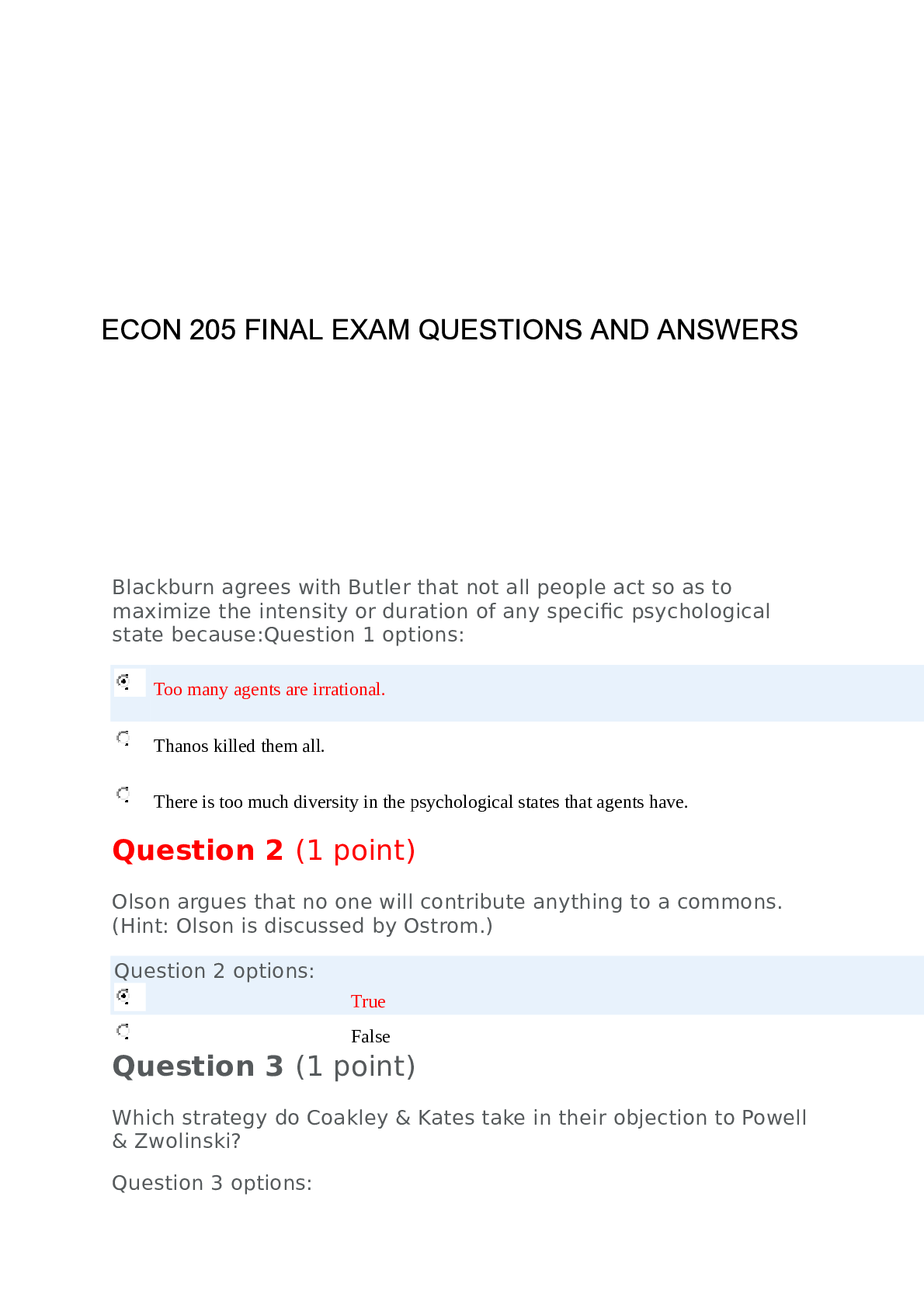
Reviews( 0 )
Document information
Connected school, study & course
About the document
Uploaded On
Aug 08, 2021
Number of pages
12
Written in
Additional information
This document has been written for:
Uploaded
Aug 08, 2021
Downloads
0
Views
166


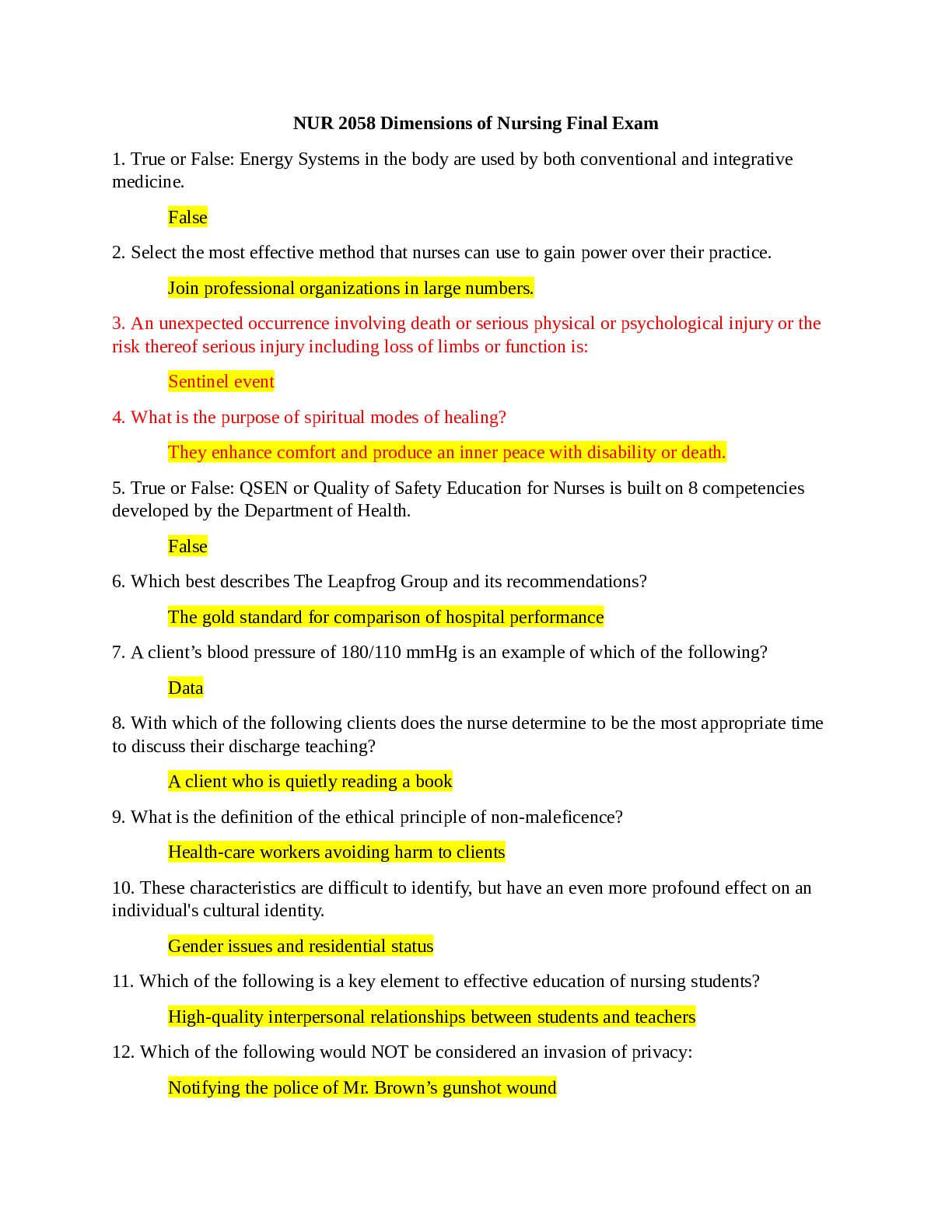



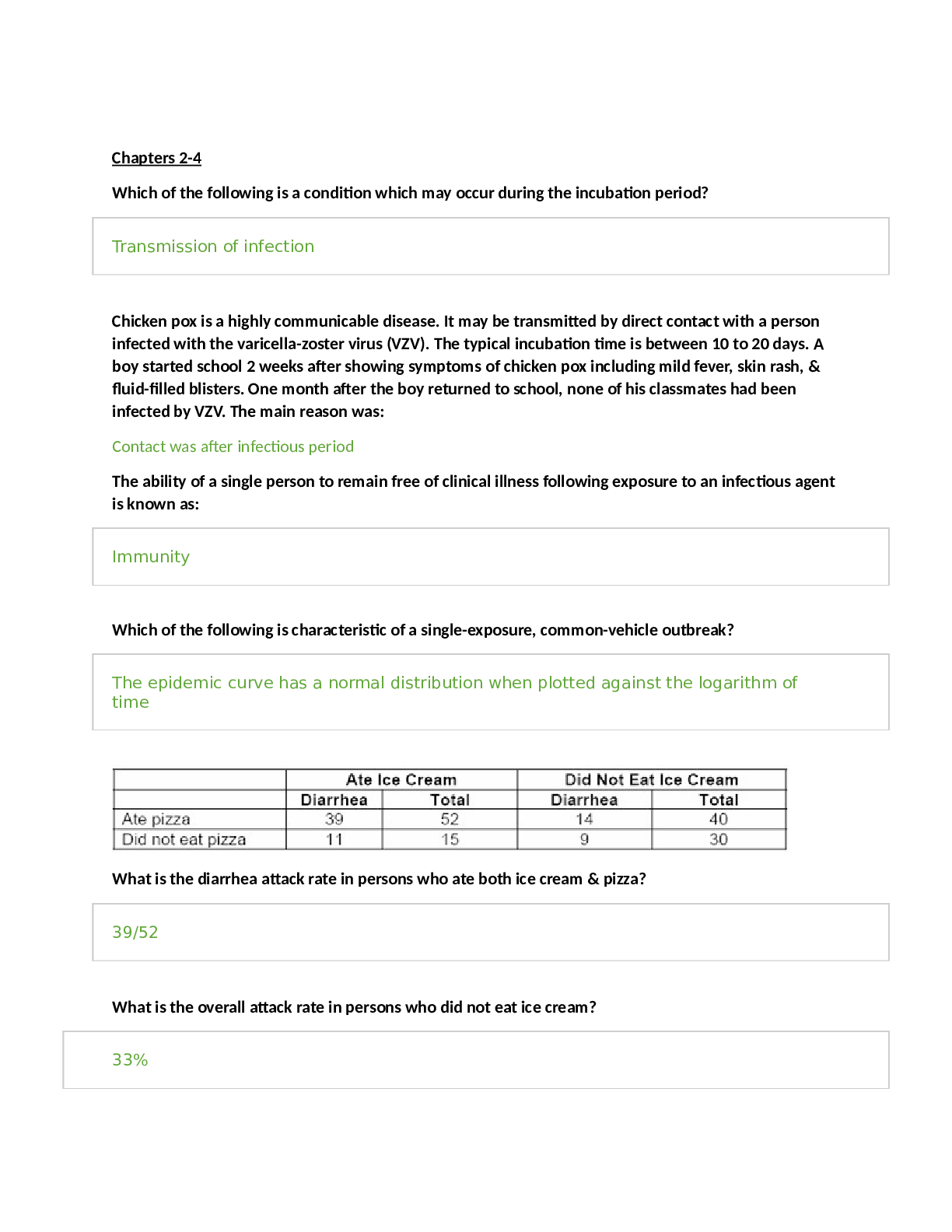
 Complete solutions.png)
 NURS 3247Pharmacology - Proctored Assessment,.png)

